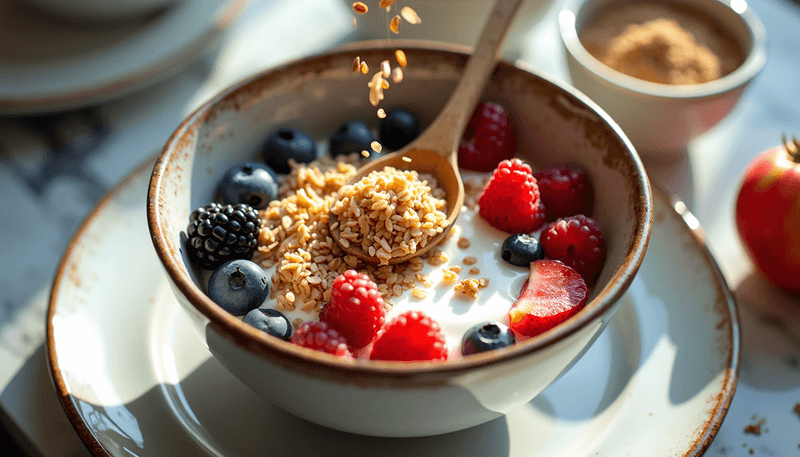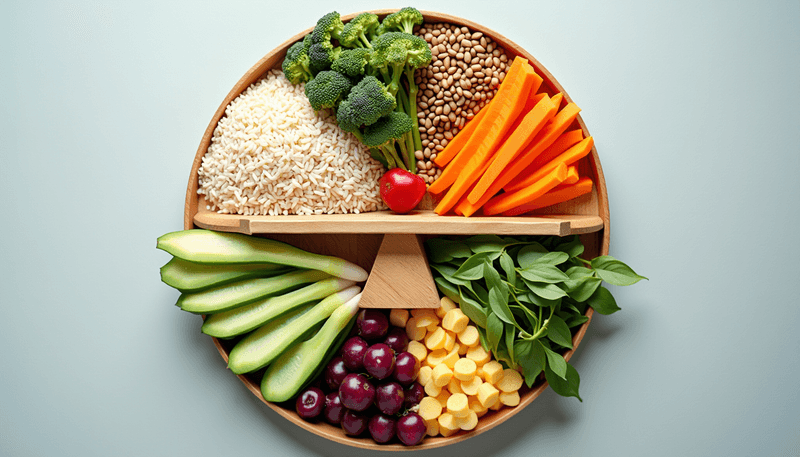Rice Bran Helps Prevent Muscle Loss

Did you know that the outer layer of rice, often discarded during processing, might hold the key to maintaining muscle strength during menopause? As a medical writer focusing on women's health, I've seen countless studies about managing menopausal symptoms, but this recent research about rice bran has caught my attention. A groundbreaking study published in Nutrients reveals how rice bran could help prevent muscle loss and improve gut health during menopause.
The Hidden Power of Rice Bran for Muscle Health
When I explain muscle health to my patients, I often compare it to maintaining a house. Just as a house needs regular maintenance to prevent deterioration, our muscles need proper nutrition and care to stay strong. The research shows that rice bran contains high levels of dietary fiber, γ-oryzanol, and ferulic acid - components that work together like a maintenance crew for your muscles.
Have you ever noticed how much harder it seems to maintain muscle strength as you age, especially after menopause?
The study revealed that mice receiving rice bran supplementation maintained better muscle mass and grip strength compared to those without supplementation. This finding is particularly significant because:
- Rice bran helps reduce inflammation markers that contribute to muscle loss
- It supports proper glucose metabolism, which is essential for muscle energy
- The fiber content promotes beneficial gut bacteria growth
Gut Health: Your Second Brain During Menopause
Think of your gut as a garden - the right conditions help beneficial bacteria flourish, while poor conditions lead to unwanted growth. The research demonstrated that rice bran significantly improved gut health by:
- Increasing beneficial bacteria like Akkermansiaceae
- Strengthening the gut barrier through improved tight junction proteins
- Boosting production of beneficial short-chain fatty acids
What if I told you that taking care of your gut could help maintain your muscle strength?
I often recommend starting with small changes. Adding 2-3 tablespoons of rice bran to your morning smoothie or oatmeal can be an easy way to begin incorporating this supplement into your daily routine.
Weight Management Support Through Metabolic Balance
The study showed that rice bran supplementation helped manage weight gain in subjects consuming a high-fat diet. This is particularly relevant for menopausal women who often struggle with weight changes. Here's how rice bran helps:
- Regulates blood sugar levels
- Reduces fat accumulation
- Supports healthy metabolism through improved gut function
From my clinical experience, I've found that sustainable weight management comes from focusing on adding beneficial foods rather than just restricting calories. Rice bran exemplifies this approach perfectly.
The science behind these benefits lies in rice bran's unique composition. It contains a powerful mix of:
- Dietary fiber (34.6%)
- Plant proteins
- Beneficial fats
- Vitamins and minerals
- Bioactive compounds
Practical Implementation Tips:
- Start with 1-2 tablespoons daily to allow your digestive system to adjust
- Mix into smoothies, yogurt, or baked goods
- Store in an airtight container in the refrigerator
- Choose stabilized rice bran to prevent rancidity
- Combine with regular physical activity for optimal results
Are you ready to give your body the support it needs during this transition?
In conclusion, rice bran offers a natural, evidence-based approach to supporting muscle health, gut function, and weight management during menopause. The research provides compelling evidence that this often-overlooked food ingredient deserves a place in our daily nutrition strategy.
Your Next Step: Choose one meal tomorrow where you'll add a tablespoon of rice bran. Whether it's your morning oatmeal or afternoon smoothie, this small change could be the beginning of a powerful health transformation.

Dr. Marcus Anthony Bennett
Dr. Marcus Bennett is a Seattle-based freelance medical writer and consultant specializing in mid-aged women's health. With a background in internal medicine and over a decade of experience in preventive care, he is dedicated to making complex health topics accessible. Dr. Bennett completed his MD at Johns Hopkins School of Medicine and residency at the University of Washington. His empathetic and evidence-based approach combines traditional medical expertise with a focus on health disparities, often incorporating practical lifestyle advice. Known for his clear, engaging communication, Dr. Bennett provides actionable insights to empower his audience.







